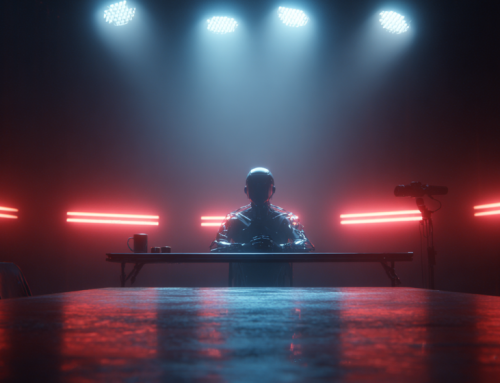
The system, developed by Boston-based Perceptive, utilizes a hand-held 3D volumetric scanner with optical coherence tomography (OCT) to create a detailed 3D model of the mouth, capturing teeth, gums, and even nerves beneath the tooth surface.(Source: Image by RR)
AI-Driven Dental Robot Reduces Procedure Time from Two Hours to Just 15 Minutes
In a groundbreaking moment for dentistry, an AI-controlled autonomous robot developed by Boston-based company Perceptive has performed the world’s first fully-automated dental procedure on a human patient, completing the task about eight times faster than a traditional dentist. The robot uses a hand-held 3D volumetric scanner with optical coherence tomography (OCT) to create detailed, high-resolution 3D models of the mouth, eliminating the need for harmful X-rays. Once the necessary treatment is discussed between the human dentist and the patient, the robot takes over, planning and executing the procedure with remarkable precision and efficiency. The robot’s initial focus has been on preparing teeth for dental crowns, a process that typically requires two hours over two visits, but which the robot completes in just 15 minutes.
The success of this robotic dental procedure has sparked excitement within the industry, with Perceptive’s CEO, Dr. Chris Ciriello, highlighting the potential for this technology to democratize access to superior dental care by enhancing precision, efficiency, and patient outcomes. General dentist and Perceptive clinical advisor Karim Zaklama also praised the system for its advanced imaging capabilities, which provide unprecedented detail for early diagnosis and patient communication. As reported in newatlas.com, the robotic approach is seen as a way to streamline procedures, reduce patient discomfort, and significantly cut down chair time, thereby increasing the number of patients that can be treated effectively.
While the thought of a robot drilling into one’s teeth might be unsettling, it’s not entirely different from the discomfort associated with human-performed dental procedures. Robotic surgery, controlled by humans, has been advancing rapidly, and the idea of robots performing such tasks autonomously is becoming more feasible. The potential benefits of this technology, such as significantly reduced procedure times and less physical strain on patients, could lead to a decrease in dental costs, making advanced dental care more accessible.
However, this robotic dental system is not yet FDA-approved, and Perceptive has not provided a timeline for when it will be available to the public. The company is actively working on expanding the machine’s capabilities to handle a broader range of dental treatments. While it may take some time before this technology becomes widely available, the successful implementation of this robotic system marks a significant step forward in the future of dental care.
read more at newatlas.com







Leave A Comment